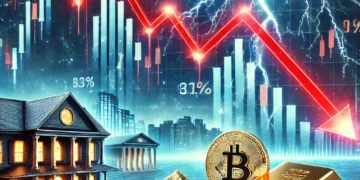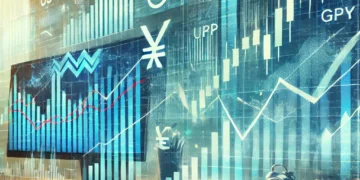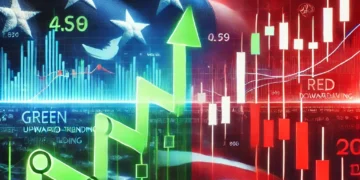The Rise of ESG Investing: How Sustainability is Shaping the Future of Trading
In recent years, Environmental, Social, and Governance (ESG) investing has become one of the hottest topics in the trading and investment world. Investors are increasingly looking to align their portfolios with their values, focusing on companies that prioritize sustainability, social responsibility, and ethical governance. As of 2024, ESG investing is more than just a trend; it’s a movement reshaping global markets. In this article, we’ll explore the rise of ESG investing, provide key statistics, and discuss how traders can navigate this emerging landscape.
Introduction: What is ESG Investing?
ESG investing refers to the practice of incorporating environmental, social, and governance factors into investment decisions. Investors who focus on ESG consider a company’s impact on the environment, its relationship with stakeholders (employees, customers, and communities), and its governance structure, such as board diversity and ethical business practices.
This type of investing has gained traction as more investors—particularly millennials and Gen Z—demand greater transparency and responsibility from the companies they support. In fact, by 2023, more than $35 trillion in assets were invested in ESG-related strategies globally, representing about 36% of all professionally managed assets.
Why ESG is Gaining Popularity 📈
Several factors have contributed to the rapid growth of ESG investing:
Climate Change Awareness: The increasing focus on climate change has pushed investors to seek out companies that are reducing their carbon footprint and adopting sustainable practices.
- Stat: More than 80% of global institutional investors are integrating ESG factors into their investment process, according to a 2022 survey by Morgan Stanley.
Consumer Demand for Ethical Products: Consumers are demanding more from companies, from using sustainable materials to ensuring fair labor practices. As a result, investors are drawn to companies that reflect these values.
Corporate Governance Failures: Scandals like those involving Facebook and Volkswagen have highlighted the importance of good corporate governance. ESG investors look for companies with transparent, ethical leadership.
Regulatory Pressure: Governments around the world are imposing stricter regulations on environmental and social practices, pushing companies to improve their ESG metrics. Investors, in turn, are keen to avoid companies that may face regulatory penalties or reputational damage.
The Performance of ESG Investments 💼
Contrary to the belief that ESG investments sacrifice returns, research shows that ESG-focused funds often perform in line with, or even outperform, traditional funds.
Outperformance: A 2022 study by Morningstar found that 58% of ESG funds outperformed traditional funds over the last 10 years. Companies with strong ESG scores are often more resilient, reducing risks associated with regulatory penalties, social unrest, or environmental disasters.
Risk Reduction: ESG factors can help identify risks that traditional financial metrics might miss. For example, a company with poor environmental practices may face lawsuits or regulatory fines that could significantly affect its stock price.
Key Sectors Affected by ESG 🌍
Renewable Energy: With global attention on reducing carbon emissions, renewable energy companies have become a focal point for ESG investors. Solar and wind energy stocks, in particular, have seen strong growth in recent years.
Technology: Tech companies with strong governance and data privacy policies are becoming more attractive to ESG investors. Ethical governance and diversity are key considerations for investors in this sector.
Healthcare: Companies focusing on affordable and accessible healthcare are gaining traction among ESG investors, particularly in the wake of the COVID-19 pandemic.
How Traders Can Approach ESG Investing
If you’re looking to incorporate ESG factors into your trading strategy, here are some key steps to consider:
Research ESG Ratings: Various firms, such as MSCI and Sustainalytics, provide ESG ratings for publicly traded companies. These ratings assess a company’s performance on environmental, social, and governance metrics.
Look for ESG-Focused ETFs: Many exchange-traded funds (ETFs) now focus specifically on ESG criteria. For example, funds like the iShares ESG Aware MSCI USA ETF (ESGU) or SPDR S&P 500 ESG ETF (EFIV) provide exposure to companies with strong ESG scores.
Diversify Across Sectors: ESG investing is not limited to a single sector. Consider building a diversified portfolio across multiple industries, including technology, healthcare, and renewable energy, to reduce risk while capitalizing on ESG growth.
Monitor Regulatory Changes: Keep an eye on changing regulations related to ESG, as they can have a significant impact on specific companies or industries.
Conclusion: The Future of ESG in Trading
ESG investing is here to stay. As consumers, governments, and investors push for greater transparency and responsibility from corporations, companies that score highly on environmental, social, and governance factors will likely continue to see strong growth.
For traders, ESG presents both opportunities and challenges. By staying informed, diversifying your portfolio, and using tools like ESG ratings, you can capitalize on this rapidly growing trend while making a positive impact on the world.
Stay tuned for more trading insights and strategies from The Trader Vault! 📊💡
Key Statistics:
- ESG assets hit $35 trillion globally by 2023.
- 58% of ESG funds have outperformed traditional funds in the past decade.
- Over 80% of institutional investors now integrate ESG into their decision-making process.
























